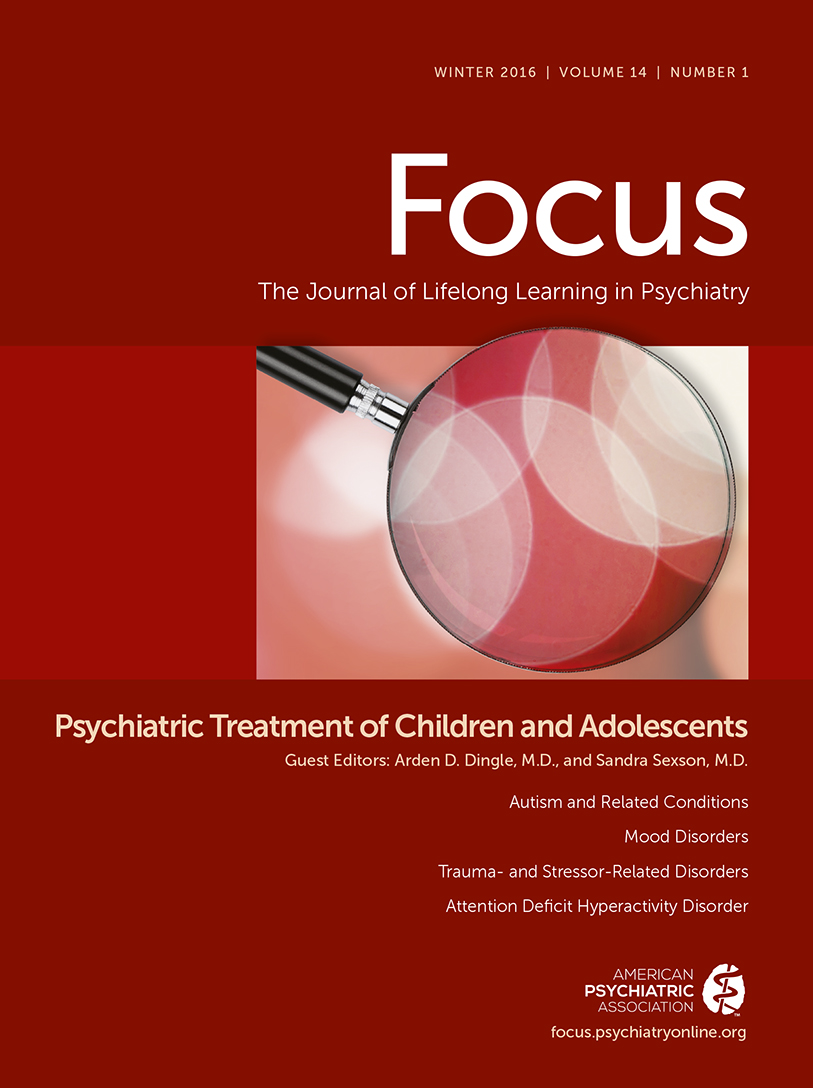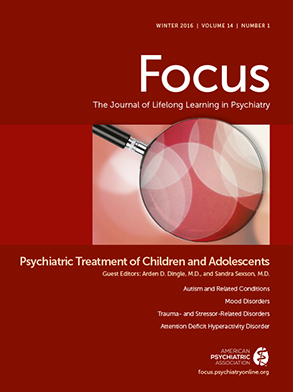Depressed, irritable, or moody feelings are common symptoms of children and adolescents. At least 50% of youths endorse at least one of those symptoms as occurring to a significant degree and only slightly fewer of their parents do (
1). Negative mood characterizes a number of mental health conditions, but depressive disorders are the most commonly associated. The co-occurrence of other symptoms (e.g., sadness, impatience, anger, or the inability to enjoy life or being with others) that last long enough to interfere with school or relationships or with sleep and appetite signals a major depressive episode. However, once the possibility of a depressive disorder is raised, it becomes important to consider other mood disorders as well.
The following three articles describe three of the most important conditions associated with mood disturbance of children and adolescents: major depressive disorder, bipolar disorder, and disruptive mood dysregulation disorder (DMDD), which is a new diagnosis in DSM-5. Although negative mood is a core or important feature of major depressive disorder and DMDD, it is also important in bipolar disorder, in which irritability/negative mood may co-occur with depression even during a manic episode. There are, of course, important differences. Although both major depressive disorder and bipolar disorder are episodic, by definition DMDD is characterized by chronic irritable mood. Comorbidity with attention-deficit hyperactivity disorder (ADHD) is common in all three conditions. There are genetic underpinnings in bipolar disorder, although they have a lesser role in major depressive disorder and are not yet well studied in DMDD. Neurocognitive findings are emerging and point to similarities and differences between these disorders. Treatment, however, is quite different.
Mood disorders of youths share depressive symptoms, frequent comorbidity, and the potential for significant and enduring impairment in social and academic function. Although overall heritability of major depression is approximately 35% (
2) and increases with age of onset, genetic factors contributing to bipolar disorder are far greater, ranging from 60% to 93% (
3). Heritability of DMDD, a less stable diagnosis that diminishes over time (
4), is unknown, yet long-term follow-up suggests that future rates of anxiety and depression are high (
5). Successful treatment of youths with major depression is more robust than for youths with bipolar disorder or DMDD. Selective serotonin reuptake inhibitor antidepressant and cognitive-behavioral therapy alone and/or in combination is efficacious for approximately two-thirds of youths with major depression (
6), whereas second-generation antipsychotics appear to be more efficacious than either lithium or divalproex for youths with bipolar disorder (
7). Until placebo-controlled treatment studies for DMDD have been completed (
8), treating the known prominent comorbidities (e.g., ADHD and oppositional defiant disorder) is a sensible course of action. Finally, more efficacious treatments need to be developed for depression, bipolar disorder, and DMDD.

